Dear Annie – Can you offer any direction for prostate enlargement with high PSA Levels? I am a 70-year old man and have been going to my local health center for an enlarged prostate. My PSA level has risen from 10 to 12 despite a change in diet and medication. I have had an enlarged prostate for 2 to 3 years. During that time I’ve also had problems with urination. The Doctor is pushing for a biopsy, which I am not keen on. I would appreciate any direction you can offer. Thanks.
First, It’s important to understand that both prostate enlargement and elevated PSA Levels are not uncommon in men. Especially as they age. Therefore, in answer to your question we will address the following:
- What does it mean to have a PSA (Prostate-specific antigen) reading over 10? And why would it rise?
- Is prostate cancer a concern?
- What are some natural solutions for your enlarged prostate and urinary problems?
- What are some steps I can take for my highest level of self-empowered prostate health and decision making?
Let’s start with by understanding the Prostate-specific antigen (PSA) and go from there.
- Common problems that can cause prostate enlargement
- Prostate Cancer
- Prostatitis
- Benign Prostatic Hyperplasia
- Herbal Support for Prostate Enlargement with elevated PSA
- Helpful nutritional supplements
- Recipe
- Product Suggestions
The Prostate-specific Antigen or PSA
Prostate-specific antigen, or PSA, is a protein produced by the prostate gland. Both healthy and malignant (cancerous) cells of the prostate produce this antigen. A lot of doctors use PSA screenings to evaluate men for the possibility of prostate cancer. This way doctors have a better idea of who to refer for further testing. The PSA screening cannot detect prostate cancer. Only a biopsy can tell whether or not you have prostate cancer.
PSA screenings are considered controversial. According to Harvard Health Publishing, they are not necessarily a reliable tool to screen for prostate cancer. According to recent studies, these tests are prone to false-positive and false negative results. Thus leading researchers to question its overall benefit. Plus, prostate cancer survival rate isn’t necessarily increased with the screening. Instead, there is an increase of overtreatment, along with the unwanted side effects of prostate cancer treatment.
What Do PSA Results Mean?
A higher PSA reading does not indicate the presence of cancer. Truth be told, there is no “normal” reading. PSA level results are usually reported as nanograms per milliliter (ng/mL) of blood. A reading of 4.0 ng/mL or lower is considered optimal or normal. Yet that doesn’t necessarily mean you’re at a higher risk for of prostate cancer with a higher reading.
There are several other conditions that can cause an increased PSA levels. And PSA levels almost always increase as you age, especially if your over 60. Higher readings can also be due to prostatitis (an infection of the prostate gland), Benign prostatic hyperplasia (BPH), urinary tract infections and even vigorous exercise. Finally, higher numbers can indicate growths in the prostate, either benign (non-cancerous) or cancerous.
Lower PSA numbers do not rule out the possibility of prostate cancer. A 2004 study in the New England Journal of Medicine showed that about 15% of the men studied, between the ages of 62 and 91, with 4.0 readings or less were diagnosed with prostate cancer. However, the general thought is, the higher a man’s PSA level, the more likely it is that he has prostate cancer. A continuous rise in a man’s PSA level over time may also be a sign of prostate cancer.
Further Prostate Testing
It is your decision to follow through with further prostate cancer testing or not. However, for a cancer diagnosis a biopsy is needed.
Common Problems that can cause prostate enlargement with high PSA levels
The most common problems of the prostate gland that can cause prostate enlargement as well as an increase in PSA levels are
- Prostate Cancer
- Prostatitis
- Benign Prostatic Hyperplasia (BPH).
- Andropause, or male menopause can also make your PSA levels increase.
Let’s start with prostate cancer.
About Prostate Cancer
Prostate cancer is very common in men, especially after the age of 60. Medical specialists say that most men will have some type of prostate cancer after 80 years old. In fact, prostate cancers are the second most diagnosed cancer in men. (With non-melanoma skin cancer the most common). Most of the prostate cancers in older men are slow growing, low volume prostate cancers. These kind of cancers usually do not affect quality of life or life expectancy. This type of prostate cancer takes a really long time to grow and become “clinically important”. In the study referenced above, 67 out of 500 prostate cancer cases (13%) were considered clinically important. Now that’s not always true. There are some forms of cancer that grow quickly, even in older men. Again, only a biopsy can tell.
Symptoms of Prostate Cancer
Many men don’t have any symptoms, especially if the cancer is small and slow growing. More advanced cases of prostate cancer may cause a variety of symptoms including:
- Trouble starting to urinate
- Frequent urination
- The feeling of incomplete urination
- A weak flow of urine
- Pain with urination or ejaculation
- Blood in your urine or semen
- Impotence/erectile dysfunction
- Bone pain
- Pain in the hip, pelvis, lower back, or thigh
- Numbness in the lower extremities
- Loss of bladder or bowel control
Most common prostate conditions share the same, or similar symptoms. BPH or benign prostatic hyperplasia and prostatitis (an infection of the prostate gland) are common in men of advancing age with symptoms that look very similar. Let’s take a closer look.
Prostatitis (infection of the Prostate Gland) can cause Prostate enlargement and high PSA levels.
“Itis” means inflammation, irritation or infection. Bronchitis is an inflammation or irritation of the bronchioles of the lungs. Prostatitis is an inflammation or infection of the prostate gland. Itis’s can be acute or chronic.
Acute Prostatitis
When an infection is acute it usually comes on quickly, with more severe symptoms. Acute prostatitis is usually a bacterial infection. And almost always occurs in younger, sexually active men. There may be a fever, swelling, pain and tenderness along with the other urinary problems that come with an inflamed prostate. Acute illness usually will run its course in a week or so.
Chronic Prostatitis
Chronic Prostatitis is more complicated. This kind of inflammation or swelling of the prostate gland comes on slowly and can last for several weeks or months. There are 3 main kinds of chronic prostatitis:
- Chronic Bacterial Prostatitis – Typically caused by an active bacterial infection.
- Chronic Nonbacterial Prostatitis, also called chronic inflammatory pelvic pain syndrome. Here there is no bacterial infection present, yet there are typical symptoms of prostatitis. Sometimes White blood cells are found in the urine.
- Prostadynia is also called non-inflammatory chronic pelvic pain syndrome. The least understood of the three types. Doctors believe prostadynia may be caused by other factors, not prostate related. Possible causes include environmental poisoning, allergies or autoimmune disease.
Symptoms of Chronic Prostatitis
Symptoms are often similar to those of a urinary tract infection. There is likely to be pain, burning and discomfort. Symptoms may include:
- Burning during or after urination
- Difficulty starting the urine stream
- Dribbling after urination has been completed
- A need to urinate frequently or urgently
- The feeling that the bladder cannot be completely emptied.
- Pain felt above the penis, in or below the scrotum, or in the back or rectum
- Pain experienced during or after orgasm
- Pelvic pain (bladder, perineum, testes, and the penis)
- Erectile dysfunction (ED).
To Learn More about Prostatitis Click Here Now
Benign Prostatic Hyperplasia (BPH) can cause prostate enlargement and high PSA levels
BPH is also known as enlarged prostate. This is a chronic condition that affects 50-60% of all men. Although BPH can happen at any age, it is more frequent in older men.
Symptoms can include:
- Difficulty initiating urination
- Weak urine output, which includes dribbling or straining, or stops and starts during urination
- Frequent urination
- The urgent need to urinate
- Inability to empty bladder completely
- Painful urination
- Nocturia or the need to urinate at night.
A healthy prostate gland is about the size of a walnut. Some say that with BPH, the prostate can increase in size to as large as an orange. As the inflammation increases, the passage of urine becomes blocked. If urine becomes blocked, the pressure can back up causing kidney damage.
Click here to learn more about Benign Prostatic Hyperplasia (BPH)
Deciding where to begin
After discussing the 3 main reasons why you might be experiencing prostate enlargement and high PSA levels, how do you decided which is going on for you? The best, easiest way is to get a diagnosis from your Dr. Doctors have tests at their disposal with results to give you a clear diagnosis.
When working with herbal and holistic healing modalities, we look less at the diagnosis and more at the whole person. We look at how each person is experiencing what is going on in their body.
Identify Your Symptoms
The first step is to take a close look at the symptoms. If you have a diagnosis, that’s a good place to start, but it’s only a start. As herbalists we look at the qualities of health and dis-ease alike. Then, we use words like hot, cold, tight, loose and inflamed to describe what’s going on. With a personalized assessment, we try to get a good picture of the whole person. An herbalist will take a look at your health, or lack of it, on as many levels as possible, including mind, body, spirit and emotions. Suggestion are offered after the assessment.
The truth is, just throwing herbs at a problem hardly ever works. Everything has an energy. And everything’s energy affects everything else. If an inflammation is hot, we bring a cooling, soothing solution. Astringents tighten tissues that are overly relaxed. And diuretics decrease and drain excess fluids. The best most comprehensive treatment comes by addressing the underlying cause.
All that said, I might suggest beginning by addressing the prostate inflammation along with any urinary discomforts. Things may look different when the swelling is down.
Natural Solutions for Prostate enlargement and Cancer Prevention
Now that you have an idea of what might be causing the problem, we can dive into possible solutions. In this writing our focus is on the prevention of prostate cancer along with some suggestions to decrease prostate enlargement. BPH and prostatitis will be addressed in separate blogs to give each their due consideration.
Herbal Support to help relieve prostate enlargement, high PSA levels and prevent prostate cancer
Turmeric rhizome (Curcuma longa)
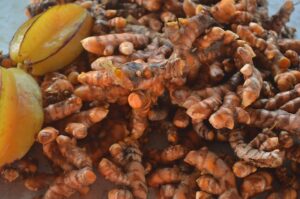
A widely used and well-studied herb. One of the main constituents in Turmeric is Curcumin. Turmeric has potent anti-inflammatory, antioxidant and cellular protective effects. It’s a powerful anti-tumor agent that has shown in scientific studies to down-regulate over 70 genes that can cause cancer (called oncogenes). A 2010 study showed that Curcumin inhibited and interfered with prostate cancer proliferation (ability to grow) and metastasis (when it travels through the body). This is an AMAZING herb.
I like to use whole herbs or herbal extracts made with whole herbs. In the case of Turmeric, it pleases me that my preference is backed up by scientific evidence. A 2019 study by the Point Institute found that whole turmeric offers more bio-available active ingredients than products where only curcumin was extracted.
My favorite way to dose turmeric is by adding the paste (see recipe below) to milk, smoothies and other foods. Take 2-3 teaspoons of the paste per day for cancer prevention, liver protection and anti-inflammatory effects. The capsules may also be taken. Take 250-500 mg three times per day. Take 30-60 drops of the tincture or liquid extract 3 to 4 times per day.
Much larger doses are needed for active cancer therapy. For this, Donald Yance, herbalist and nutritionist, suggests a dosage between 2000 and 4000 mg per day. That’s approximately 1.33 cups. 2 or 3 smoothies per day, with other herbs added, may be the easiest way to take such large quantities.
Maca tuber (Lepidium meyenii)
Although somewhat controversial, I like the addition of Maca to the diet or as a supplement to treat and prevent prostate cancer. Maca is a member of the Broccoli family (Brassicaceae), whose cancer fighting attributes are well documented. The active constituents of these vegetables are glucosinalates, the levels of which is very high in Maca. You can take capsules: 2-500 mg capsules two to 3 times per day. I like to add a heaping spoonful of the powder into my morning smoothie.
Allium (Onion) Family Herbs.
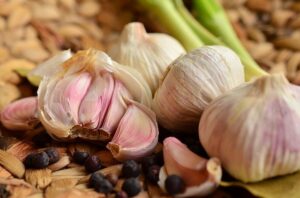
regular consumption of Alliums (Garlic, Onions, Scallions, Ramps, Leeks, Shallots) is related to a decreased risk of developing prostate cancer. These vegetables are rich sources of several antitumor compounds. Onions contain quercetin, which is anti-inflammatory and has cancer inhibiting activity.
According to Donald Yance, it is best to use aged garlic. Garlic products that have been aged 20 months contain the highest levels of a compound called SAMC-aged garlic (S-allyl-cysteine). SAMC has been well studied and is often suggested in the treatment of cancerous growths. Aged garlic also improves the breakdown of testosterone and in one study slowed the growth of cancer cells by 70%. As a side benefit, it lowered the PSA levels in the blood significantly.
Green Tea (Camellia sinensis)
Regular consumption of Green Tea is linked to lower levels of prostate cancer. Green tea polyphenols (EGCG) have been found in animal and human studies to delay the development and progression of prostate cancer. In one human trial, EGCG significantly reduced serum PSA levels (and other factors) in men with prostate cancer. Take Green Tea extract standardized to EGCG: 800 mg per day.
PC SPES
PC-SPES is an herbal formula developed by International Medical Research Inc. after 10 years of study on cancer, herbs and treatments. The formula contains 8 herbs: Reishi mushroom, baikal skullcap, rabdosia, dyer’s woad, chrysanthemum, saw palmetto, Panax ginseng, and licorice. All known for their beneficial effects on the immune system. The formula has shown positive results again and again for those with prostate cancer. Evidence from clinical trials shows that PC-SPES lowers PSA and testosterone levels in humans. This supplement seems to induce programmed cell death and make treated cells more sensitive to other anti-tumor agents. Although the patented version of this supplement is no longer available, other manufacturers continue to make products under the same name.
Supplements for Prevention and Treatment of Prostate Cancer
Omega 3 Fatty Acids
Eating foods high is essential fatty acids and Omega 3 fatty acids is associated with lower rates of prostate cancer. They have antitumor action, are anti-inflammatory, inhibits metastasis and helps the body and muscles stay nourished. Omega 3 fatty acids help to maintain a healthy weight, prevent muscle atrophy and loss of body mass. Foods Studies indicate that foods like flaxseed, flaxseed oil, fish oils and hemp oils reduce prostate inflammation and have a more pronounced inhibitory effect on highly aggressive prostate cancers. Add 1-2 teaspoons to your diet daily.
Zinc
is found in almost every cell of the body. Zinc is a component of over two hundred enzymes and is a major contributor to reproductive and immune health, both important factors for a healthy prostate and reduction of cancer risk. It’s best to take a supplement made with whole foods not to exceed 50 mg per day. I usually suggest a 30 mg supplement, especially if another multi-vitamin is also being taken.
Quercetin
A flavone, found in foods like onions, broccoli, eucalyptus and blue green algae. Quercetin may be one of the most powerful anti-cancer agents present in nature. It blocks proinflammatory reactions in the body and stabilizes mast cells and capillary beds. Quercetin with bromelain on an empty stomach 30 min before a meal results in higher bio availability of the nutrients in the meal. Take 1-3 grams of quercetin per day in divided doses with vitamin C and bromelain.
Resveratrol
One of the reasons they say a glass of red wine per day with dinner reduces the risk of cancer and cardiovascular disease. Resveratrol is an active constituent or “stilbene” found abundantly in grape leaves and skins, red wine, Japanese Knotweed, and red peanut skins. In studies, resveratrol has shown anti-inflammatory and antioxidant activity. Most importantly it exhibited chemoprevention activity and inhibited all stages of tumor growth. Grape leaves, red wine and dark grape juice are all good sources of resveratrol. See the product suggestion section below for good resveratrol supplement options.
Vitamin D
low levels of vitamin D are associated with increased risk of prostate cancer as well as more virulent forms of the disease. Vitamin D (D3) enables your immune system to identify cancer cells and prompt normal cell death (apoptosis). Plus, it decreases the ability of more aggressive cancers to proliferate and metastasis. Before adding large amounts of Vitamin D3 to your diet, it’s a good idea to do a blood test. Self-blood tests are available on-line, or you can get one from your health care practitioner. Take capsules: 2,000 – 4,000 i.u. per day.
Many other vitamins, minerals and supplements are indicated for the preservation of health and the prevention of prostate and other forms of cancer. If you’re at high risk for prostate cancer, or are a man of advanced age, the most suggested diet is the Mediterranean diet.
The Mediterranean Diet for the treatment and prevention of prostate enlargement, high PSA levels and prostate cancer
A traditional diet from the Mediterranean region that includes generous portions of fresh produce, whole grains and legumes with moderate amounts of healthy fats, fish and some meats. Other traditional diets filled with whole grains, whole fresh foods and very little in the way of processing and preservatives would probably work as well. Click here for more information about the Mediterranean diet.
Recipes
Turmeric Paste 1/2 cup Turmeric powder 1/2 cup coconut oil or ghee 1/4 teaspoon black pepper (more or less to taste) 1 1/2 teaspoons ginger powder 1-1 1/2 cups filtered water Pinch of natural mineral salt Simmer the turmeric powder together with 1 cup of water in a saucepan, on low-medium heat. Stir constantly. Once the turmeric has been thoroughly stirred in, add the additional ½ cup of water if desired. Keep stirring until the mixture has reached a paste-like consistency. This can take 5 – 10 minutes. Add coconut oil and continue to simmer as you add black pepper and ginger. Blend thoroughly. Pour paste into a glass container, let cool and refrigerate for up to 3 weeks. The paste freezes well for future use.
Ghee
Making Ghee at home is easy and inexpensive. Presented blow is a lovely video by Wonderment Gardens about making ghee. Click here to view the ghee video.
Product Suggestions
Available at Wonderment Gardens LLC
At Wonderment Gardens we make a variety of hand crafted herbal products including tinctures, extracts and individualized formulas. Wonderment Gardens make all our products in small batches with a little added love. We always use the highest quality organic, wildcrafted and garden grown ingredients. I hope you’ll contact us for all your herbal needs.
Annie Jones, a clinical herbalist with more than 30 years experience, is available to help you assess your health needs. You may contact her at the link below to set up a consultation to develop your personal health plan.
Affiliate Product Suggestions
The following are affiliate links. That means, if you purchase a product through one of the links, I make a commission at no additional cost to you. Rest assured I only suggest products I can support and feel confident about. Thank you for your support.
Turmeric
Botanic Choice offers a large selection of high quality Turmeric products. Click here to see there great selection.
Gaia Herbs Turmeric
Gaia Herbs also offers a nice choice for high quality turmeric. Gaia’s Turmeric is formulated in a traditional way using black pepper and an activator. You can always count on quality with Gaia. These guys are one of my favorite companies. Why not give them a try? They also offer golden milk paste. Yummy.
Maca Root
Studies show that Maca, especially Red Maca, reduces prostate enlargement and helps lower PSA levels. Why not get the best quality from the grower. Plus they have several types of preparations to choose from. So you can take it however best serves you.
Aged Garlic
Green Tea Extract EGCg
Supersmart herbs and supplements makes a superb green tea extract standardized to 95% EGCg.
Studies on green tea extract over the last few years have provided mounting evidence of the health benefits, such as:
- Potent antioxidant, anti-bacterial and anti-cariogenic effects.
- Protection of the kidneys.
- Thermogenic properties, promoting effective weight control.
- Regulating blood sugar and lipid levels.
- Important role in longevity.
Omega 3 fatty acids
Botanic Choice has a big variety to choose from in there Omega 3 fatty acids. Below is a good choice to add to your smoothie. Other forms are also available as you desire.
Here’s a choice from Supersmart. Gotta say, I’m liking Supersmart more and more all the time.
Quercetin
IsoQuercitin by Supersmart is 17 times more bioavailable than other formulations. Quercitin is
- Recognized anti-cancer, anti-allergy and antioxidant effects effects.
- Recommended for digestive or respiratory allergies including asthma and hay fever.
- Enhanced bioavailability.
Resveratrol
Several Great choices for resveratrol. All extracted from red grapes. Supersmart is the organic choice.
Thank you for reading my blog. Next week we will discuss prostatitis followed by benign prostatic hyperplasia (BPH). Finally, we will discuss andropause, or male menopause. Thanks again and see you next week.
Blessings
Annie
References
https://www.health.harvard.edu/decision_guide/understanding-the-prostate-specific-antigen-psa-test
https://www.ncbi.nlm.nih.gov/pubmed/15163773
https://www.cancer.gov/types/prostate/psa-fact-sheet#r1
https://www.oncolink.org/cancers/prostate/all-about-prostate-cancer
Winston, Davis RH (AGH), Men’s Health Issues: Herbal and Nutritional Treatment for Common Genito-Urinary Problems. Southwest Conference on Botanical Medicine Lecture Notes, 2015
Stage, Katie ND, RH(AHG) and McAllisterm, Heather ND, RH(AHG): Botanicals Without Borders Surpassing our gender bias with herbs. Southwest Conference on Botanical Medicine Lecture Notes, 2014
Arvigo, Rosita DN; An Integrative Approach to Reproductive Health in Men and Women. Medicines from the Earth Botanical Medicine Lecture Notes, 2004
https://www.ncbi.nlm.nih.gov/pubmed/19806380
https://www.pointinstitute.org/wp-content/uploads/2019/11/Curcumin-White-Paper-PI-2019.pdf
Yance, Donald Jr.; Herbal Medicine, Healing and Cancer, A Comprehensive Program for Prevention and Treatment. 1999, Mc Graw Publishing NY, NY.
Disclaimer
The statements and ideas presented here are not intended to diagnose, treat, cure, or prevent any disease or condition. They have not been evaluated by the FDA. All ideas presented are for the sole purpose of education. To help you take control of your own health. If you have a health concern or condition, consult a physician. We suggest that you always consult a medical doctor before modifying your diet, using any new product, drug, supplement, or doing any new exercises.
The statements and products presented here have not been evaluated by the FDA and are not intended to diagnose, treat, cure, or prevent any disease or condition. If you have a health concern or condition, consult a physician. Always consult a medical doctor before modifying your diet, using any new product, drug, supplement, or doing any new exercises.
When Herbs are taken for health purposes, they should be treated with the same care as medicine. Herbal remedies are no substitute for a healthy diet and lifestyle. If you are serious about good health, you’ll want to combine diet, exercise, herbals, a good relationship with your doctor and a generally healthy lifestyle. No one of these will do it alone.
This information is designed to be used as part of a complete health plan. No products are intended to replace your doctor’s care, or to supersede any of his/her advice or prescriptions.

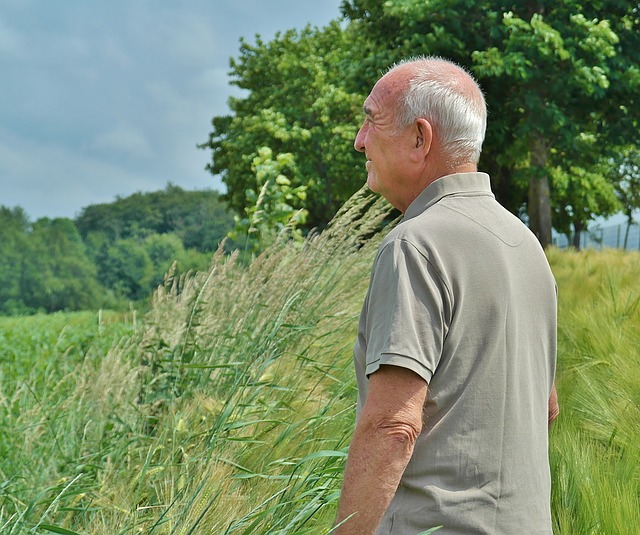
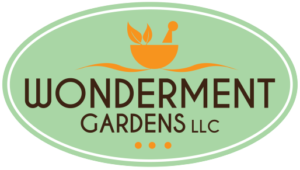
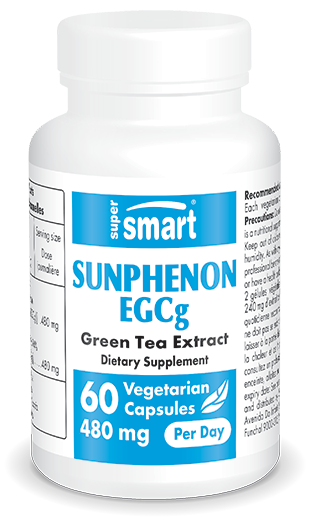
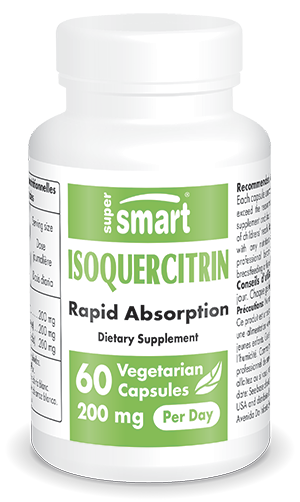
Terrific article
Thank you, glad you liked it